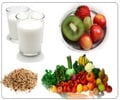A small number of French citizens, such as Luc Friedrich, who love horsemeat say that the major problem for them is to find a good horse butcher.

"But that is mainly because its difficult to find. Not so long ago there was a horse butcher in every neighbourhood of Paris but there were problems in the 1980s with imports from eastern Europe and that killed the industry."
"Now people have to travel to find a good butcher so they've lost the habit. When you can get it though, it can be really, really good."
Although the French are often held up as the most enthusiastic consumers of horsemeat in Europe, industry figures indicate it now accounts for just 0.4 percent of overall meat consumption in the country. Just under one in five households eat the meat once a year or more.
Along the street from Friedrich's wine shop, market trader Ronan Marache is doing a steady trade in lean cuts of horsemeat that his primarily middle-aged or elderly customers will take home to grill or chop up, marinate and then simmer gently for a few hours to create a hearty "daube de cheval (horse stew)."
There are not many takers however for the horse's head in parsley, equine tripe sausages or even the finely-sliced smoked horse that resembles well-aged Parma ham.
Advertisement
Although fresh meat traders like him are operating at a different end of the market to industrial producers of frozen ready meals, the scandal has highlighted problems with the traceability of what ends up on tables across Europe.
Advertisement
"There have been a lot of questions about the origin of the meat," Marache said. "All ours comes from Ireland, I tell the customers that and they seem happy enough."
Marache's boss, Daniel Mazure, runs four market stalls in the prosperous western suburbs of the French capital. He knows all about the long-term decline of a trade his family has been involved in for three generations.
But he is confident enough about the future to be on the point of expanding his network and he doesn't see his customers turning away.
"We deal with people who like eating horse. They know it is tasty and they know it is good for them," he told AFP. "Many of them eat it because their parents eat it, and they've introduced their children to it."
Mazure estimates that the mad cow disease scandal in the 1990s, which resulted in dozens of human deaths and highlighted serious problems with the large-scale production of beef, gave horsemeat sales a boost of around 20 percent.
Once the beef industry was seen to have addressed its problems, that ended up as a retained gain of around five percent, he says.
With his horse sirloin steaks going for around 21 euros per kilogramme and fillet attracting nearly 40 euros/kg, just under the price of premium beef, Mazure knows customers have to trust the quality of what they are eating if his trade is to survive.
"There is no obligation for traceability with horsemeat, but I can tell you where every carcass I sell comes from, what abattoir it was slaughtered in, whether it was male or female and when and where it was moved."
"The people we sell to are not looking to save money. They're looking for a quality product that gives them pleasure. I don't think that will change because of what's happening now."
Source-AFP









